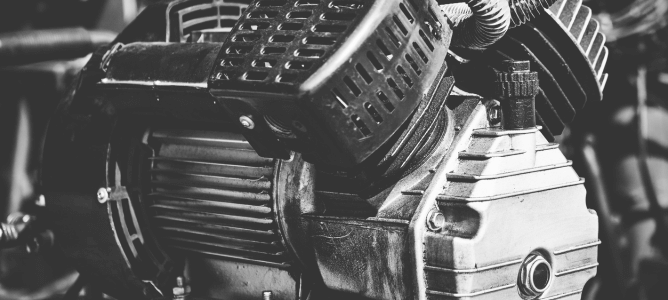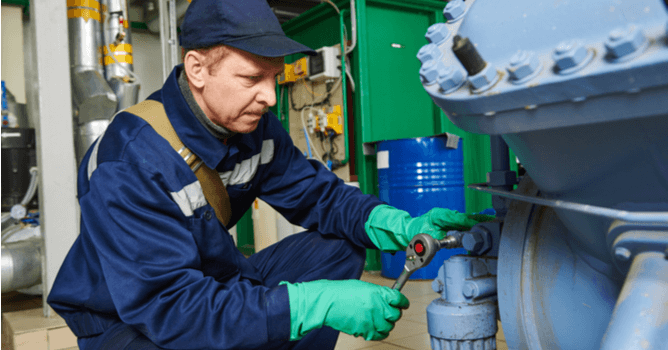
Understanding the Different Types of Air Compressors & Choosing the Right One for Your Needs
Industrial air compressors are vital to many industries, such as manufacturing, construction, and automotive. They can be used for various tasks, from powering tools to inflating tires. With so many types of air compressors available in the market, choosing the right one for your needs can be overwhelming. But don’t worry — we are here to help!
In this blog, we will explore the different types of air compressors. We will also cover how to choose the right air compressor for your industry and provide some tips on maintenance and care. Learn from the experts at NiGen and make an informed decision on which air compressor suits your needs.
Different Types of Air Compressors: Positive Displacement and Dynamic
Positive displacement compressors, which utilize pistons or rotors, are used to compress air. On the other hand, dynamic compressors rely on high-speed impellers to create compressed air. Positive displacement compressors excel in low-flow applications, while dynamic compressors are better suited for high-flow scenarios. Knowing the difference is crucial in selecting the right compressor for your needs.
Reciprocating (Piston) Air Compressors
Reciprocating air compressors utilize pistons and cylinders to compress air efficiently. These types of compressors are commonly found in small workshops or used for portable applications. They come in single-stage and two-stage configurations, allowing for different levels of air compression. Additionally, reciprocating compressors can be oil-lubricated or oil-free, providing options based on specific needs. When choosing a reciprocating air compressor, consider factors such as power source, tank size, and CFM to ensure optimal performance.
Rotary Screw Air Compressors
Rotary screw air compressors utilize two interlocking rotors to efficiently compress air. These compressors are well-suited for industrial applications due to their continuous operation and high efficiency. For sensitive environments, oil-free rotary screw compressors are available. When selecting a rotary screw air compressor, consider factors such as horsepower, cubic feet per minute (CFM), and cooling requirements. These compressors provide reliable and consistent compressed air for a wide range of industries and applications.
Centrifugal Air Compressors
Centrifugal air compressors utilize a high-speed impeller to efficiently compress air, making them ideal for large industrial facilities. These compressors are known for their ability to deliver high flow rates and handle high-pressure applications. However, to ensure their optimal performance, regular maintenance and care are crucial. It is advisable to consult with experts to determine if a centrifugal compressor is the right choice for your specific needs.
Scroll Air Compressors
Scroll air compressors, a type of positive displacement compressor, utilize two interlocking spiral-shaped scrolls to compress air. These compact and quiet compressors are commonly used in medical and dental applications. Unlike other compressors, scroll compressors are oil-free, requiring less maintenance. When choosing a scroll air compressor, factors such as airflow, pressure, and lubrication must be considered. Ensure that the selected compressor meets the specific needs of your industry.
Axial Air Compressors
Axial air compressors, commonly used in aircraft engines and gas turbines, rely on rotating blades to compress air. These compressors offer high flow rates and low-pressure ratios, making them suitable for power generation and petrochemical industries. When considering an axial compressor, it is essential to consult experts to determine its suitability for your specific needs. By understanding the different types of air compressors available, such as positive displacement and dynamic compressors, you can choose the right one for your industry.
Choosing the Right Air Compressor for Your Industry
When selecting an air compressor for your industry, it’s essential to consider the specific airflow and pressure requirements of your applications. Evaluate the available size and power source options, such as electric motors or diesel engines. Assess the efficiency and maintenance needs of different compressor types, including oil-free, rotary, and piston compressors. To make an informed decision, consult with experts who can help you determine the ideal air compressor to meet your industry’s demands without wasting energy.

Maintenance and Care of Different Air Compressor Types
Conducting air compressor audits and regularly checking and replacing filters is essential to maintain optimal air quality in different types of air compressors. It is also important to monitor and adjust lubrication levels as the manufacturer recommends to ensure smooth operation. Inspecting and cleaning cooling systems is necessary to prevent overheating and potential damage. Following the recommended maintenance schedules for each compressor type is crucial for its longevity and efficiency. Practicing proper maintenance and care will extend the air compressor lifespan.
Learn More from the Air Compressor Experts at NiGen
Contact NiGen for professional guidance when choosing an air compressor. We provide reliable solutions and high-quality products, ensuring maximum performance and air compressor efficiency. Trust our expertise to make an informed decision.
